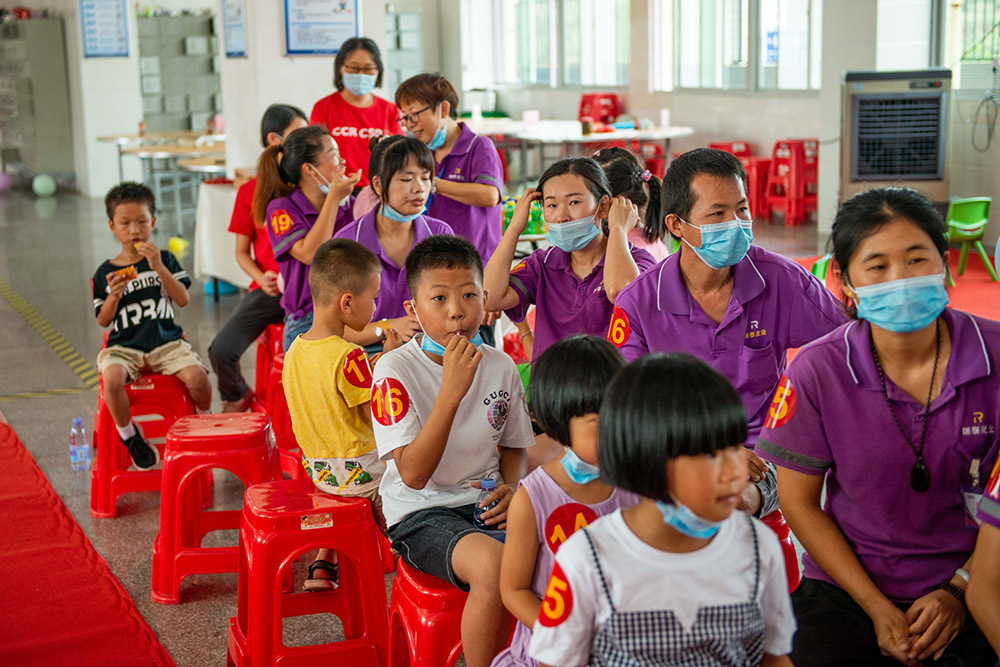
The Centre for Child Rights and Business (formerly CCR CSR) has released a new study that explores migrant parent workers’ migration trends in China’s export manufacturing sector since 2017, while also focusing on how COVID-19 has impacted workers and what buyers, retailers and suppliers can do to mitigate related challenges and risks. Our latest study is based on data from 73 factories, 2137 workers and 13 children in China, drawing on surveys and in-depth interviews.

The study found a number of positive trends related to migrant parents and children, including a continuous increase in workers migrating together with their children for work since 2017: 37.7% of surveyed migrant parents said they live with all of their children in 2020, compared to 20.2% in 2017. Another positive finding is that significantly fewer migrant parents find living with their children challenging.
Looking at how the COVID-19 pandemic affected migrant families, we saw that parents got to spend more time with their children, while children spent less time without adult supervision.
While these are indeed positive trends, the study found that migrating with their children is still a challenge for many parents, and 57.2% of parents currently do not live with their children. For those who do, immense challenges still exist: Increased financial pressure (36.3%) and struggling to spend enough time with children (27.5%) were the top 2 challenges identified by workers in 2020. These challenges are also closely linked to the type of support workers would like from their factories: family dorms, flexible working hours, and education support for their children.
More parent families reported being able to access education in 2020 than in 2017, but at the same time, one of the most significant negative impacts experienced by migrant families this year was on their children’s education. Faced with significant financial losses and job uncertainty this year because of COVID-19, 40.6% of parents in this study said they find it more difficult to guarantee their children’s education and 30.4% said they may move back to their hometowns if they lose their jobs.
The study also presents data from existing factory programmes that show these programmes can lead to increased retention intention and stronger worker-management relationships, a topic that was further explored in a panel discussion during The Centre’s virtual launch event on Dec. 15 with VF, ALDI and IETP. With rising labour shortages identified as a key challenge in the years ahead by panellists, the general consensus by all speakers was the need to adapt a pragmatic approach in supply chain management that includes a stronger commitment to family-friendly initiatives, stronger relationships between buyers and their supply chain, and more equitable sharing of responsibility and risk going forward.
The Centre was delighted to share our key findings to 50 representatives from the business community in China and the Oceania region during the virtual launch event, and looks forward to hosting a second launch for audiences in Europe and the US in early 2021. Event and registration details for the second launch will be shared in due course.
Please do not hesitate to download and share the new study and infographic below. For queries about our study or services, please contact us.



Getting Through a Pandemic by The Centre.pdf


Getting Through a Pandemic_Infographic Spread by THE CENTRE.pdf
By using this website, you agree to our use of cookies. We use cookies to provide you with a great experience and to help our website run effectively.